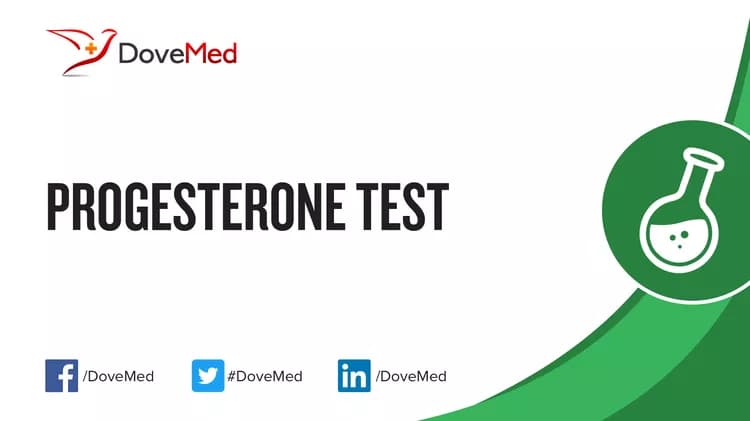What are the other Names for this Test? (Equivalent Terms)
- P4 Test
- Progesterone Blood Test
- Serum Progesterone Test
What is Progesterone Test? (Background Information)
- Progesterone is a female sex hormone essential to the menstrual cycle and to pregnancy (gestation). It is made by the ovaries and adrenal glands, during menstruation. This occurs in a cyclic fashion and follows the menstrual cycle
- Additionally, during pregnancy, the placenta and corpus luteum ‘mass-produce’ progesterone. Thus, progesterone levels climb sharply, during pregnancy
- Progesterone facilitates pregnancy by stimulating the uterine-lining to grow. This makes it more receptive to attachment by a fertilized egg. Progesterone also causes an enlargement of the breasts
- Lastly, progesterone protects the growing embryo by decreasing the mother’s immune response
- Males also produce the hormone, but in lesser quantities. Progesterone plays a role in the production of sperms and other hormones. A drop in its level could lead to a variety of disorders in men
- The Progesterone Test is a blood test that measures the levels of progesterone in circulation. It is generally used to determine, both the phase of the menstrual cycle and the status of a pregnancy
What are the Clinical Indications for performing the Progesterone Test?
The following are clinical indicators for performing a Progesterone Test:
- In order to monitor the menstrual cycle; especially in case, a woman wants to become pregnant
- Monitor the status of pregnancy
- Abnormal bleeding from the uterus, during non-pregnancy
- Infertility
How is the Specimen Collected for Progesterone Test?
Sample required: Blood or saliva
Process:
- Insertion of a needle into an arm vein (for blood sample)
- Saliva swab (for saliva sample)
Preparation required: None
What is the Significance of the Progesterone Test Result?
Elevated levels of progesterone may indicate:
- Ovulation has occurred, if the sample is from a non-pregnant woman
- Normal corpus luteum function, if the sample is from a pregnant woman
- Adrenogenital syndrome (disorder of the adrenal glands) in males
Low levels of progesterone may indicate:
- Ovulation has not yet occurred, if the sample is from a non-pregnant woman
- Abnormal (ectopic or extra-uterine) pregnancy, if the sample is from a pregnant woman
- Toxemia (presence of toxins in blood), if the sample is from a pregnant woman
- Ovary disorder
The laboratory test results are NOT to be interpreted as results of a "stand-alone" test. The test results have to be interpreted after correlating with suitable clinical findings and additional supplemental tests/information. Your healthcare providers will explain the meaning of your tests results, based on the overall clinical scenario.
Additional and Relevant Useful Information:
- Progesterone works with other hormones, such as estrogen, during normal menstrual cycle and pregnancy
- The sperms can sense progesterone levels and they use this property, to hone in on an egg cell during fertilization
- Rarely, high progesterone levels can indicate ovarian cancer or cysts. Even more rarely, genetic disorders, such as congenital adrenal hyperplasia, can be associated with elevated progesterone levels
Certain medications that you may be currently taking may influence the outcome of the test. Hence, it is important to inform your healthcare provider, the complete list of medications (including any herbal supplements) you are currently taking. This will help the healthcare provider interpret your test results more accurately and avoid unnecessary chances of a misdiagnosis.
Related Articles
Test Your Knowledge
Asked by users
Related Centers
Related Specialties
Related Physicians
Related Procedures
Related Resources
Join DoveHubs
and connect with fellow professionals


0 Comments
Please log in to post a comment.